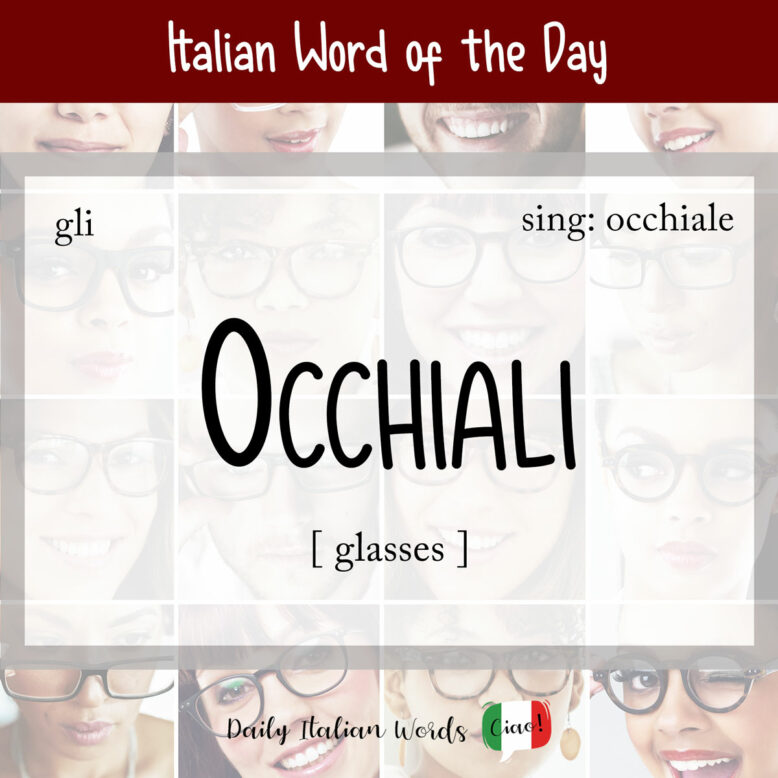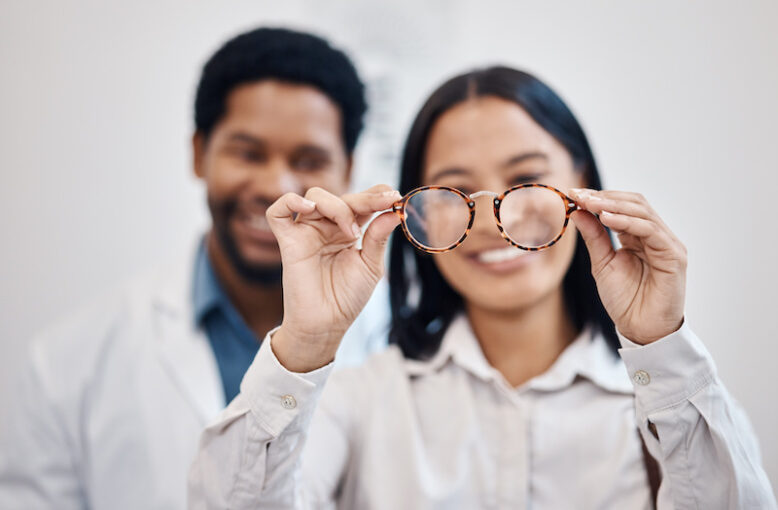It’s not every day that we come across a word that primarily exists only in its plural form. Occhiali, meaning glasses, originates from the adjective and noun occhiale, which refers to anything related to or designed for the eye.
occhiali
glasses

While occhiale is still used in everyday Italian, it is more common to use the plural form occhiali when referring specifically to eyeglasses. However, occhiale can still appear in specific contexts, such as referring to a single lens or eyepiece. It also appears in cannocchiale, the word for telescope in Italian.
- l’occhiale
- un occhiale
- gli occhiali
- degli occhiali
The origin of occhiali can ultimately be traced back to the word occhio, meaning eye. Some other useful words that derive from occhio include:
- occhiata = glance, look
- oculista = optometrist
- occhiolino = wink
- occhiaia = eye socket / bag (under the eye)
Devo mettere gli occhiali quando vado al cinema.
I need to wear glasses when I go to the cinema.
The Italian word for a monocle or eyeglass is, unsurprisingly, monocolo. While monocoli were quite popular in the late 19th century, they are rarely worn today, if not solely for effect or as a fashion statement. This decline is largely due to advancements in optometria (optometry), which have led to the development of occhiali da vista (eyeglasses) and lenti a contatto (contact lenses), both of which can be prescribed with different strengths for each eye.

Here are some of the most common types of occhiali, which you might also encounter as goggles depending on the context.
- occhiali da vista = prescription glasses
- occhiali da sole = sunglasses
- occhiali da lettura = reading glasses
- occhiali da sole graduati = prescription sunglasses
- occhialini = swimming goggles (lit. small glasses)
- occhiali protettivi = protective glasses
- maschera da sci = ski goggles (maschera means mask)
- occhiali anti-riflesso = anti-reflective glasses
- occhiali con lenti progressive = progressive lenses glasses
My mother and husband have both worn glasses since they were children due to their vista scarsa (poor eyesight). A person who wears glasses can either be presbite (farsighted or longsighted) or miope (shortsighted), and some people are both.
Those who are ipovedenti (visually impaired) or ciechi (blind) can benefit from a variety of technological advancements, such as lettori di schermo (screen readers) and dispositivi a comando vocale (voice-activated devices), both of which enhance accessibility and independence in daily life. In fact, this is one of the main reasons we always include audio examples in our word of the day articles!
Heather Broster is a graduate with honours in linguistics from the University of Western Ontario. She is an aspiring polyglot, proficient in English and Italian, as well as Japanese, Welsh, and French to varying degrees of fluency. Originally from Toronto, Heather has resided in various countries, notably Italy for a period of six years. Her primary focus lies in the fields of language acquisition, education, and bilingual instruction.


